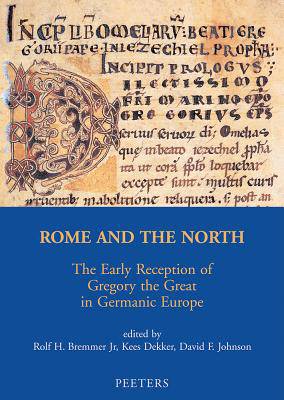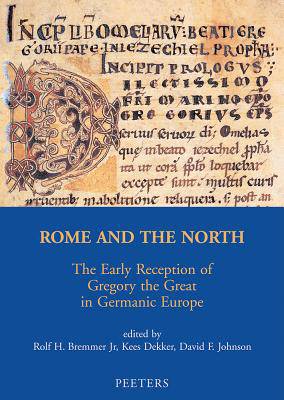
Bedankt voor het vertrouwen het afgelopen jaar! Om jou te bedanken bieden we GRATIS verzending (in België) aan op alles gedurende de hele maand januari.
- Afhalen na 1 uur in een winkel met voorraad
- In januari gratis thuislevering in België
- Ruim aanbod met 7 miljoen producten
Bedankt voor het vertrouwen het afgelopen jaar! Om jou te bedanken bieden we GRATIS verzending (in België) aan op alles gedurende de hele maand januari.
- Afhalen na 1 uur in een winkel met voorraad
- In januari gratis thuislevering in België
- Ruim aanbod met 7 miljoen producten
Zoeken
€ 101,95
+ 203 punten
Omschrijving
The very appellation, 'Gregory the Great', already indicates the quite unusual prestige and authority of this early-medieval pope. For the Germanic-speaking peoples in the North, Gregory's prominence depended, above all else, on his seminal role in their conversion. In 596 he sent Augustine on a mission to England, to convert the newly-settled Anglo-Saxons to the christian faith - a task which met with immediate success, and which has soon brought to complete fruition. This achievement secured a place of great respect for Gregory in England, where the first Life was written, around 700. Gregory's written oeuvre, too, was in great demand, and much of it was translated into Old English. Within three generations of their conversion, the Anglo-Saxons in their turn were sending missionaries to the Continent to preach the Gospel to Franks, Frisians and Saxons. Missionaries such as Willibrord and Boniface took support and inspiration from Gregory's pastoral advice to Augustine, which had already been recorded in the historical accounts of the Venerable Bede. The same reverence for Gregory accompanied the Anglo-Saxon missionaries to the continent, and later, to Scandinavia. The present volume presents a survey of the reception of Gregory's works, as this emerges in the international Latin culture of Europe, and in the early- and high-medieval vernaculars of Anglo-Saxon England, South and North Germany, the Low Countries, Frisia, and Scandinavia and Iceland. Special attention is paid to Gregory's Moralia in Job, the Homilies on Ezechiel and on the Gospels, the Pastoral Rule and the Dialogues. The contributors - from the United States, Canada, England, the United Kingdom, Italy, Belgium and the Netherlands - are specialist scholars in the relevant fields, and their contributions have been commisioned for this volume. These essays, as a group, comprise an important and up-to-date survey of Gregory's profound influence on both the literary culture of the Germanic-speaking peoples and the pastoral practice of their clergy. Through the many innovating approaches of the contributors, the book offers a challenging starting point for further research. Rome and the North is thus of interest to all students and scholars of medieval literature, theology and history and especially to medievalists interested in the lasting legacy bequeathed by Gregory to the medieval Germanic-speaking world.
Specificaties
Betrokkenen
- Auteur(s):
- Uitgeverij:
Inhoud
- Aantal bladzijden:
- 308
- Taal:
- Engels
- Reeks:
- Reeksnummer:
- nr. 4
Eigenschappen
- Productcode (EAN):
- 9789042910546
- Verschijningsdatum:
- 31/12/2001
- Uitvoering:
- Paperback
- Formaat:
- Trade paperback (VS)
- Gewicht:
- 561 g

Alleen bij Standaard Boekhandel
+ 203 punten op je klantenkaart van Standaard Boekhandel
Beoordelingen
We publiceren alleen reviews die voldoen aan de voorwaarden voor reviews. Bekijk onze voorwaarden voor reviews.









